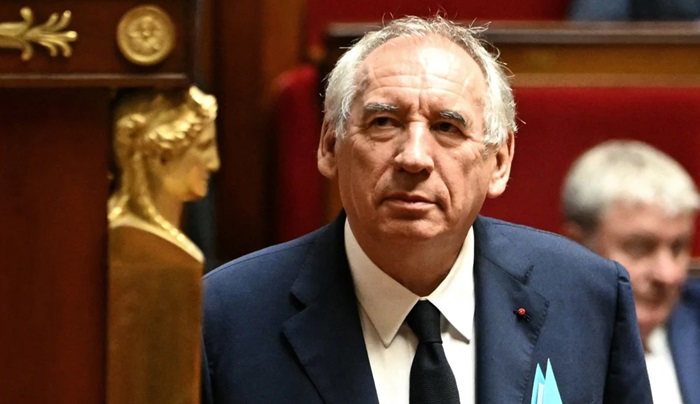The French government was thrown into fresh turmoil Monday as lawmakers fired the prime minister, the latest leader tossed out by a deeply divided legislature.
Parliamentarians on the left and right ousted François Bayrou with a whopping 364-194 vote against him in a motion of no confidence. They are unhappy about his proposal to make drastic cuts of around 44 billion euros ($51 billion) to next year’s budget, an unpopular attempt to resolve France’s economic woes.
A statement from the Élysée Palace said that French President Emmanuel Macron will appoint a new prime minister "in the coming days."
After the vote, some politicians also called for Macron's ouster. “Bayrou has fallen. Victory and relief for the people," said Jean-Luc Melenchon, head of the radical left France Unbowed party. "Macron is now on the front line facing the people. He too must go.”
This was the second time in nine months that lawmakers in France’s National Assembly ousted a prime minister; Michel Barnier was deposed in a vote of no confidence in December. Before that, the last successful vote of no confidence was in 1962. It means Macron will be looking for his fifth prime minister in just 20 months.
Though Macron remains a big presence internationally — leading European efforts to support Ukraine and provide a counterweight to President Donald Trump — at home he is dogged by a divided electorate and long-term uncertainty.
Macron, in his second term, is barred by term limits from running in the next presidential election in 2027. The far-right National Rally is leading the polls, even though its leader, Marine le Pen, is barred from office because of an embezzlement conviction, which she is appealing.
As in the rest of Europe, the far right is surging in France, capitalizing on widespread discontent over a cost-of-living crisis that has fueled a rise in anti-immigrant sentiment. And on Wednesday, large anti-government protests are expected throughout France.
“This is a moment of truth. At a time when those in charge are forced to reveal the disastrous results of five decades of wasteful management," le Pen said before the vote. "The pitiful spectacle of a collapse for the country, a disaster for the French people today ... the consequences will affect future generations for the nation."
France’s troubles took root last year when Le Pen’s National Rally performed well in Europe-wide elections and Macron stunned the Continent by calling snap parliamentary elections. Parties on the left and right were able to work together to block a victory for Le Pen, but the resulting Parliament was divided, with no group holding enough power to govern with stability.
Macron cobbled together a minority government, but as Bayrou and Barnier have found, it is extremely vulnerable to attack by its leftist and hard-right opponents. Many French political experts say the current crisis will persist until 2027 when the country elects a new leader, who will inevitably seek to cement their mandate by calling fresh parliamentary elections.
This will do little to resolve France’s short-term economic woes. Both Bayrou and Barnier were ousted while trying to resolve what they and many others see as a national debt crisis.
France’s budget deficit — how much more it spends than it earns — last year reached 5.8% of its gross domestic product. That’s far higher than the European Union average of 3.1% and the E.U.’s target of 3%, worrying investors about rising interest rates, lower credit ratings and less money for public services in the future.

